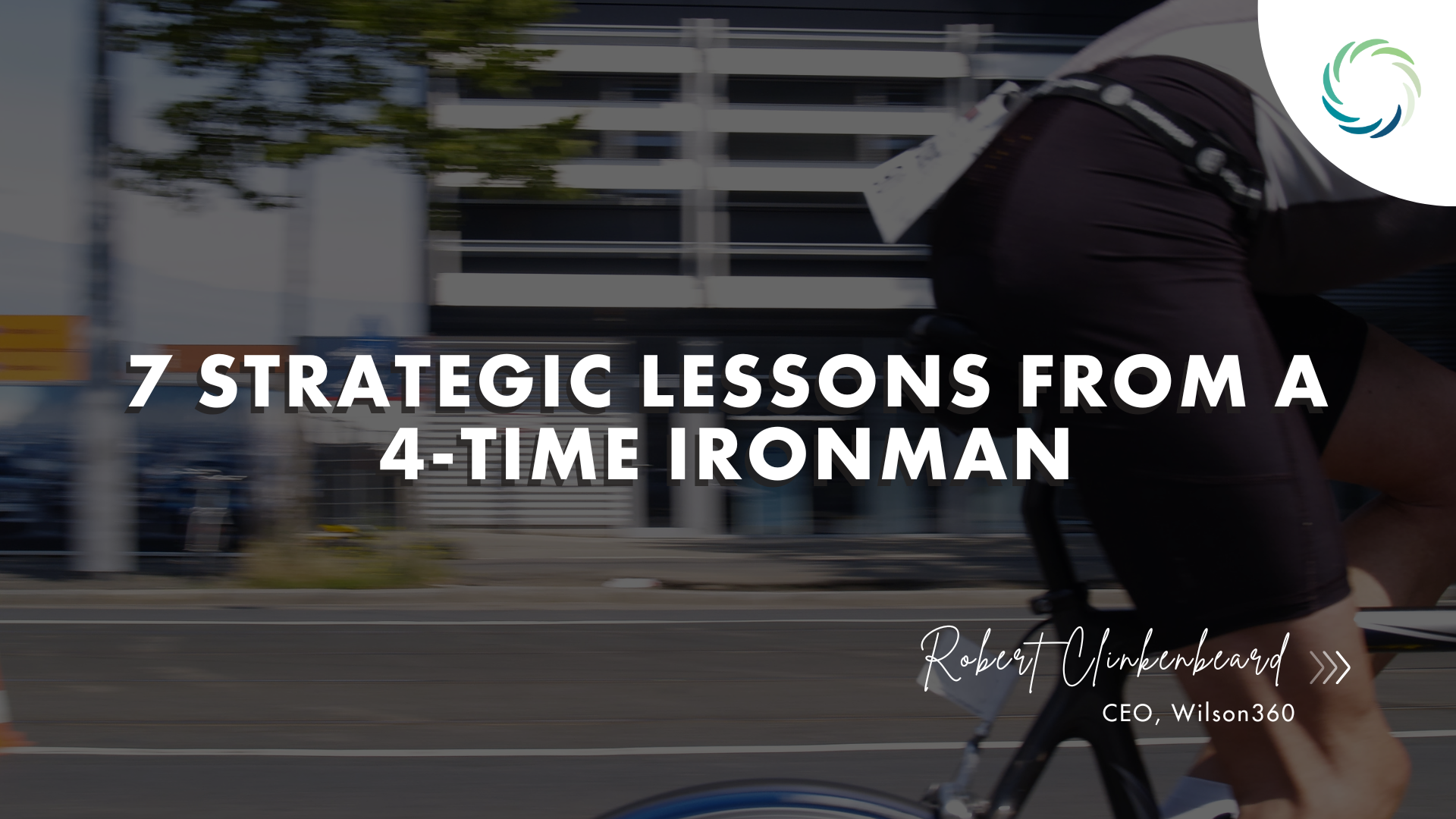
7 Strategic Lessons from a 4-time Ironman
by Robert Clinkenbeard
As a business leader and 4-time Ironman, I’ve discovered that the same discipline and strategies I use in athletic training apply directly to success in the business world. Whether you’re aiming for athletic greatness or professional growth, the principles remain the same.
Here are the lessons that have shaped my journey—take these insights to improve your own game. And once you’re ready for more, visit www.wilson-360.com to dive deeper into strategies for achieving your goals.
- Find a Guide, Not Just a Coach
In both business and sports, the right coach is more than just a trainer—they’re a guide. A great coach will help you navigate challenges, provide accountability, and create a roadmap to reach your goals. In business, this may be a mentor or consultant who offers objective feedback, helping you refine your strategies and stay on course. - Stick to the Playbook, But Be Ready to Adapt
A solid plan is your roadmap to success. Whether preparing for a triathlon or building a business, structured plans lay out clear goals, milestones, and action steps. But the key is flexibility—no plan is foolproof. Knowing when to adjust and realign your strategy is the difference between failure and success in both arenas. - Track, Reflect, and Reward Progress
Measuring your progress keeps you focused and motivated. In training, I track performance metrics like endurance and speed. In business, monitoring KPIs and other key metrics allows for ongoing adjustments and keeps everyone aligned toward the bigger goal. Celebrating even the small wins boosts morale and keeps the momentum going. - Challenge Your Limits—With Caution
Growth comes from pushing boundaries, but it’s crucial to know your limits. In sports, constantly overextending can lead to injury. The same holds true in business—overstretching can cause poor decision-making and burnout. The best strategy? Set challenging yet attainable goals that push you forward while keeping sustainability in mind. - Take Breaks With Purpose
Learning to rest with purpose was one of the hardest lessons for me. Initially, I was hesitant to take time off, thinking it would slow my progress. But proper rest allows you to recharge and come back stronger, whether it’s in the gym or the office. Intentional downtime helps improve mental clarity, creativity, and overall performance. - Avoid Overloading Your Schedule
In athletics, doubling up on workouts to compensate for missed sessions is counterproductive. In business, the same principle applies—cramming too much into your schedule can reduce the quality of your work. Prioritize what matters most and ensure you give full attention to each task rather than spreading yourself too thin. - Consistency Over Perfection
Life will always throw curveballs, and sticking perfectly to a plan isn’t always realistic. I’ve learned to give myself room to breathe—taking no more than one day off a week has helped me stay consistent in my athletic and professional life. Consistency is more powerful than perfection, so don’t get bogged down by minor setbacks.
Questions to Ponder
- How do you push your limits without burning out?
- How flexible are you in adjusting your strategy when needed?
- Who’s guiding you through the challenges—do you have a coach or mentor?
These lessons have been pivotal in both my athletic and business journeys. By integrating structured planning, disciplined execution, and strategic rest into your routine, you’ll see success on all fronts. Ready to take the next step? Visit www.wilson-360.com for more tools and expert advice to keep you moving toward your goals.
About the author: Serial entrepreneur, author, podcaster, and Ironman athlete Robert Clinkenbeard is CEO of green industry consultancy and peer group organization Wilson360. Connect with Robert at [email protected]

